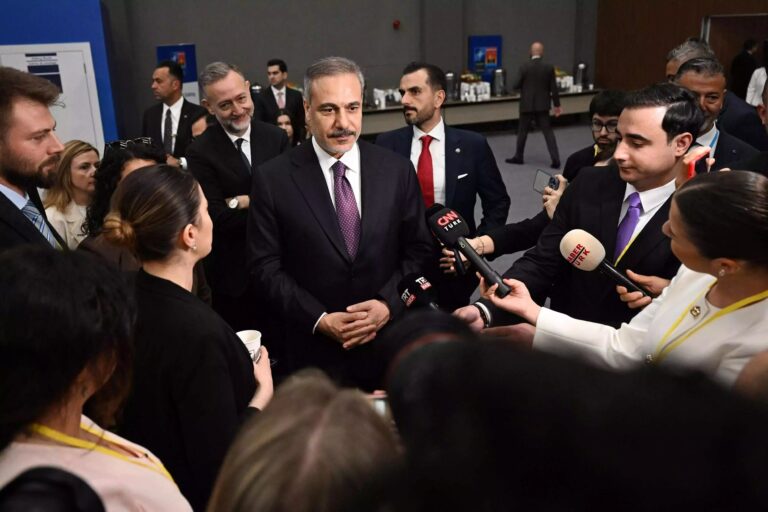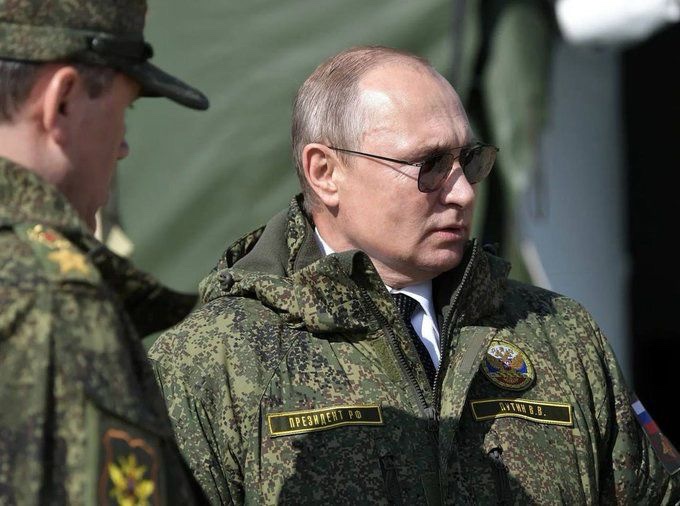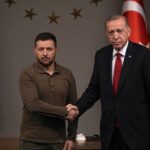The renewed negotiations in Istanbul between Russia and Ukraine have attracted international attention as a potential turning point in the ongoing conflict. While the outcomes remain uncertain, the composition of the Russian delegation and the broader strategic intentions behind it offer insight into Moscow’s goals.
I. Background of the Istanbul Negotiations Istanbul has emerged as a neutral ground for diplomatic engagement between Ukraine and Russia, reflecting Turkey’s desire to position itself as a regional powerbroker. The current round of talks is set against a backdrop of prolonged military conflict, economic fatigue, and shifting international alliances. Both sides have come under pressure—Russia from sanctions and military setbacks, and Ukraine from war fatigue and reconstruction challenges.
II. Composition of the Russian Delegation The Russian delegation may includes senior figures from the Ministry of Foreign Affairs, the presidential administration, and the security apparatus, including:
- A representative of the GRU (Russian military intelligence)
- Economic advisors from the Kremlin
- Officials from the Federal Security Service (FSB)
This composition signals a multi-pronged approach: diplomacy, intelligence gathering, and economic negotiation. The inclusion of GRU and FSB figures underscores Moscow’s desire to closely monitor Ukraine’s military position and domestic vulnerabilities, while also preparing for a post-war economic framework.
III. Strategic Objectives Behind Delegation Composition Russia’s choice of personnel reflects several objectives:
- Control: The dominance of Kremlin-aligned figures ensures that all messaging is tightly coordinated with Putin’s strategy.
- Flexibility: Economic and security officials allow Russia to pivot between hardline demands and concessions depending on external pressure.
- Signaling: The presence of security agents signals a message of deterrence, while simultaneously seeking to extract sensitive information.
Russia’s inclusion of FSB and GRU representatives in its Istanbul negotiation team likely serves several strategic purposes. Here are the key reasons why Moscow would choose to involve its primary intelligence agencies:
1. Intelligence Gathering
- Field Assessment: GRU and FSB officers allow Russia to gather insights on Ukraine’s negotiation posture, detect internal divisions within the Ukrainian delegation, and assess Western influence on the process.
- Signal Reading: These agencies monitor nonverbal cues, inconsistencies, or hesitation—critical for understanding Ukraine’s red lines and flexibility.
2. Influence Operations
- Psychological Pressure: The known presence of intelligence officers is itself a form of subtle coercion. It reminds Ukrainian negotiators that Moscow is watching closely and has deep visibility into their actions—even outside the negotiation room.
- Shaping the Narrative: FSB operatives are often involved in information warfare. They may attempt to shape how talks are portrayed internationally, including planting leaks or disinformation to manipulate perception of the negotiations.
3. Strategic Control
- Kremlin Leverage: Putin trusts the security services more than diplomats. Including FSB and GRU ensures loyalty to his personal line and prevents unexpected concessions by the civilian officials.
- Internal Vetting: These representatives act as “watchdogs” over Russia’s own delegation, making sure no side deals or soft positions emerge.
4. Preparation for Post-War Scenarios
- Future Occupation Planning: If Russia anticipates frozen conflict or occupation zones, intelligence agents are already positioned to plan networks and manage operations.
- Destabilization Options: Presence of GRU suggests that Moscow may be preparing contingencies to exploit unrest or instability in Ukrainian-held territories. Ushakov can act as a liaison between the Ministry of Foreign Affairs, GRU, and FSB factions within the delegation—balancing diplomatic language with hardline intelligence messaging.
It is unlikely that President Putin will attend the negotiations in person. His absence is deliberate and carries strategic significance:
- Avoiding Accountability: Putin prefers to distance himself from direct diplomatic failure.
- Preserving Power: Domestically, appearing detached from talks allows Putin to maintain an image of strength and authority.
- Delegation of Risk: By sending lower-tier officials, Russia can gauge international reactions and explore controversial proposals without immediate presidential commitment.
V. Implications of Putin’s Absence for the U.S.
- Diminished Trust: For Washington, Putin’s absence underscores skepticism about Moscow’s sincerity.
- Diplomatic Opportunity: It allows the U.S. and NATO allies to pressure Russian negotiators while avoiding direct confrontation with Putin.
- Policy Dilemma: The absence complicates efforts to establish a binding agreement, as negotiators lack full authority.
VI. U.S. Policy Considerations Washington should:
- Reinforce support for Ukraine to strengthen its negotiating position
- Monitor intelligence leaks via Russian negotiators
- Coordinate with Turkey to maintain transparency and neutrality in the talks
- Prepare for both successful and failed negotiation outcomes
The Istanbul negotiations are not just a diplomatic event but a reflection of Russia’s broader war strategy. The makeup of the Russian delegation and the conspicuous absence of Putin indicate a calculated, cautious approach intended to maximize leverage while minimizing risk. For the U.S., this means engaging with allies, preparing for all outcomes, and understanding the nuances of Russian negotiation tactics to safeguard Western interests and Ukrainian sovereignty.
Anticipated Russian Negotiation Tactics
The Kremlin is expected to deploy a calculated blend of hardline positioning and flexible bargaining in Istanbul, leveraging military, economic, and psychological pressure. These tactics include:
- Maximalist Opening Demands
Russia will likely begin with sweeping demands—such as territorial concessions, NATO guarantees, or demilitarization of specific regions—to anchor negotiations in its favor. These are unlikely to be accepted but serve to control the framing of discussions. - Divide-and-Conquer Strategy
The Russian delegation may seek to exploit differences between Ukraine and its Western backers. By offering limited concessions or ambiguous proposals, Moscow aims to generate debate among U.S. and EU policymakers, weakening their unified front. - Parallel Channels and Backroom Deals
Through intelligence representatives in the delegation (GRU and FSB), Russia will likely pursue off-the-record contacts to gather information, offer covert incentives, or test alternative compromises beyond the public scope of talks. - Stalling for Strategic Gains
Russia may use the negotiation timeline to delay further Western military support to Ukraine, reposition forces, or prepare for a renewed offensive. Talks become a tool for buying time and reshaping the battlefield. - Moral Equivalence Narrative
Russian negotiators are expected to emphasize civilian suffering, economic devastation, and a “need for peace” to present Moscow as a rational actor rather than an aggressor—particularly to non-aligned or Global South observers. - Threats Coupled with Incentives
Expect a dual approach: implicit threats of escalation or renewed bombardments, alongside limited humanitarian or prisoner exchange offers. This is designed to both coerce and entice.
There are three possible scenarios for the negotiations in Istanbul, reflecting the different strategic calculations and potential outcomes based on the current dynamics of the conflict and diplomacy:Scenario 1: Stalemate and Tactical Delay
Description:
The negotiations result in no substantive agreement. Russia uses the talks primarily to:
- Buy time for military regrouping;
- Test international responses;
- Sow divisions within the West.
Key Indicators:
- Russian delegation avoids detailed discussion on territorial issues
- Rejection of ceasefire terms without major Ukrainian concessions
- Emphasis on lifting sanctions or “confidence-building measures”
Implications:
- Prolonged conflict with continued attrition
- Western frustration with lack of progress
- Potential weakening of international support for Ukraine if fatigue grows.
Scenario 2: Limited Agreement for Humanitarian and Economic Access
Description:
The negotiations produce a narrow agreement—such as:
- Prisoner exchanges;
- Protection of grain and energy corridors;
- Localized ceasefires in specific regions.
Key Indicators:
- Technical teams and economic advisors take leading roles;
- Turkish mediators facilitate sector-specific compromises;
- Russia offers tactical concessions without changing strategic aims.
Implications:
- Allows both sides to claim limited success;
- May improve humanitarian conditions temporarily;
- Creates pressure on Ukraine from international actors to expand the deal.
Scenario 3: Breakthrough Framework for a Political Settlement
Description:
In a less likely but significant shift, the talks evolve into the foundation of a broader political settlement—possibly driven by:
- Russian internal pressure
- Chinese or Global South influence
- Concessions on NATO or territorial neutrality.
Key Indicators:
- Shift in Russian demands, such as openness to OSCE or UN monitoring
- Sudden backchannel involvement by high-ranking Western or Chinese officials
- Putin potentially signals conditional support through public statements.
Implications:
- Major shift in global diplomatic posture toward ending the war
- Potential splits within Ukraine’s domestic politics
- U.S. would need to carefully assess enforcement and credibility mechanisms
The Role of Turkish Mediation
Why it matters: Turkey’s role is not neutral in a vacuum—it reflects Ankara’s geopolitical balancing between NATO and Russia.
Suggested additions:
- Erdoğan’s strategic interests (energy, regional prestige, grain deal revival);
- How Turkey may subtly shape negotiation outcomes;
- Potential Turkish incentives or pressures on both parties.
VIII. Reactions from Ukraine and Western Allies
Why it matters: The negotiation is not bilateral in its implications—Kyiv and Western capitals shape, constrain, or encourage outcomes.
Suggested additions:
- Ukraine’s perception of the Russian delegation (trust, red lines);
- Key European players’ stances (France, Germany, Poland);
- U.S. expectations and behind-the-scenes involvement.
IX. Information Warfare and Negotiations
Why it matters: Russia often blends diplomacy with propaganda.
Suggested additions:
- How Russian state media is framing the talks
- Possibility of Moscow using the negotiations to fracture Western resolve or sow confusion
- Risk of disinformation leaks from the Istanbul setting.
X. Broader Strategic Consequences
Why it matters: Any negotiation, even if inconclusive, shapes war momentum, alliances, and future diplomacy.
Suggested additions:
- Potential impact on BRICS and Global South diplomacy;
- Implications for future arms deliveries to Ukraine;
- How a temporary ceasefire might be used by Russia to regroup militarily.
U.S. Reaction to the Russian Delegation’s Composition
The United States is closely analyzing the composition of the Russian delegation, viewing it as a window into Moscow’s strategic priorities. The inclusion of intelligence and security officials such as GRU and FSB representatives raises immediate concerns in Washington. This signals that Russia sees the negotiations not only as a diplomatic engagement but also as an intelligence-gathering operation—undermining trust in the process.
Moreover, the absence of top-level political figures, including President Putin or his closest diplomatic advisors like Sergey Lavrov, reinforces skepticism within U.S. policymaking circles. The delegation’s composition suggests that Moscow is hedging its bets, exploring the talks without committing to substantive concessions. For the U.S., this casts doubt on the Kremlin’s willingness to negotiate in good faith.
From a policy standpoint, Washington interprets the delegation as:
- A Tactical Probe: An effort to test Western resolve and the limits of Ukrainian flexibility.
- A Political Shield: Allowing Putin to distance himself from any potential compromises or setbacks.
- A Disinformation Risk: Raising alarms over possible manipulation of facts or narratives through diplomatic channels.
As a result, the U.S. is likely to intensify backchannel coordination with Ukrainian negotiators, emphasize intelligence countermeasures, and maintain a firm public posture on non-negotiable points such as territorial integrity and long-term sanctions enforcement.
Moreover, the absence of top-level political figures, including President Putin or his closest diplomatic advisors like Sergey Lavrov, reinforces skepticism within U.S. policymaking circles.
From a policy standpoint, Washington interprets the delegation as:
- A Tactical Probe: An effort to test Western resolve and the limits of Ukrainian flexibility.
- A Political Shield: Allowing Putin to distance himself from any potential compromises or setbacks.
A Disinformation Risk: Raising alarms over possible manipulation of facts or narratives through diplomatic channels.
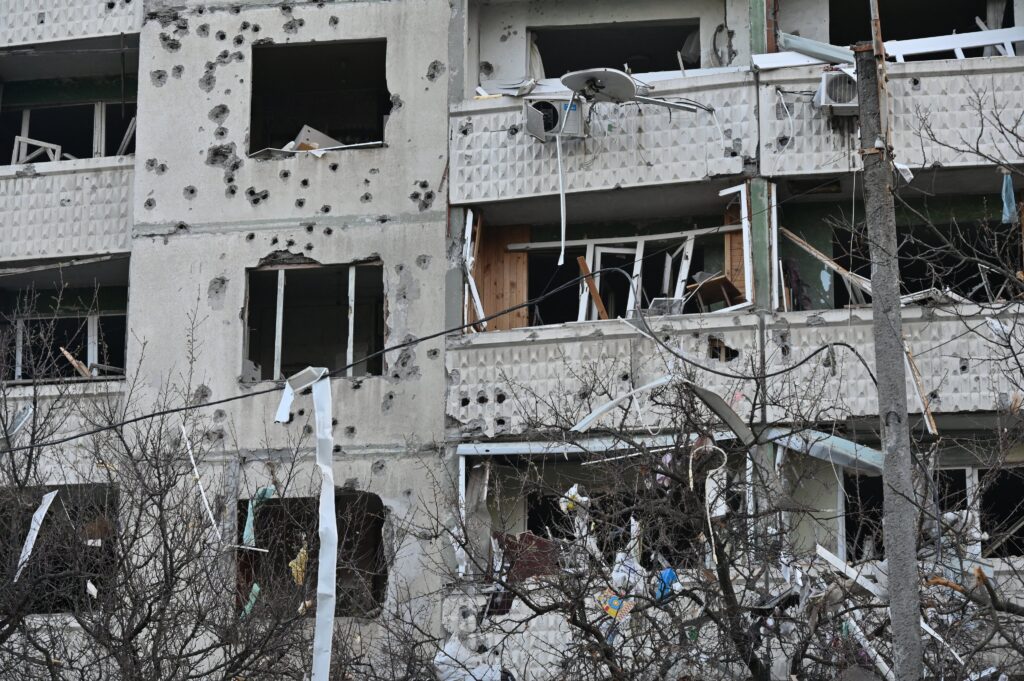
More on this story: The Broken Easter Ceasefire: Russia’s Rejection of Restraint in Ukraine
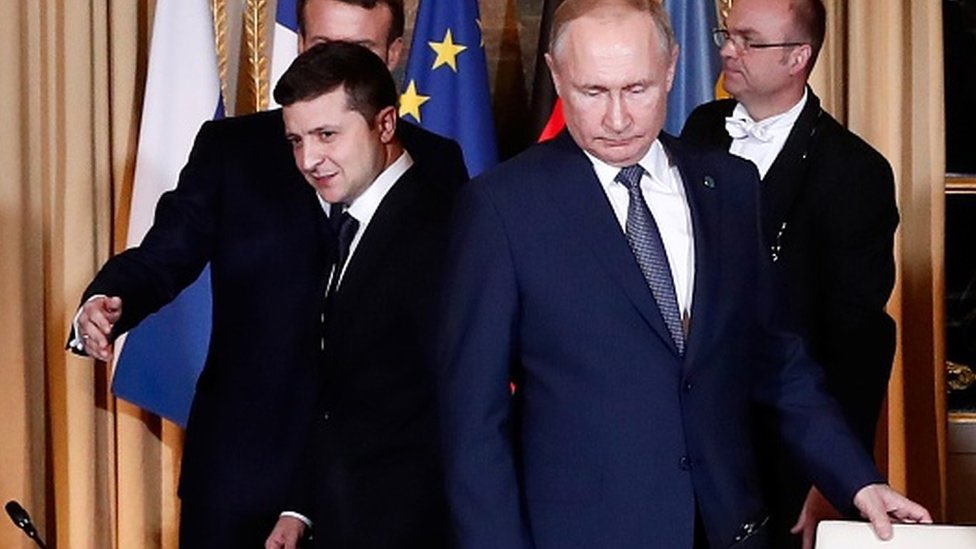
More on this story: Putin’s Shifting Mindset: Who Really Shapes Russia’s Policy?”
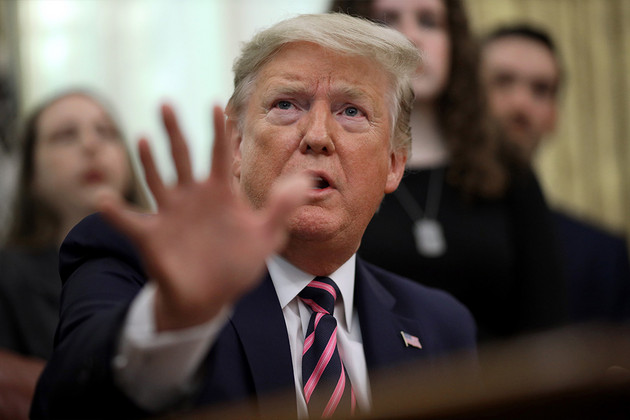
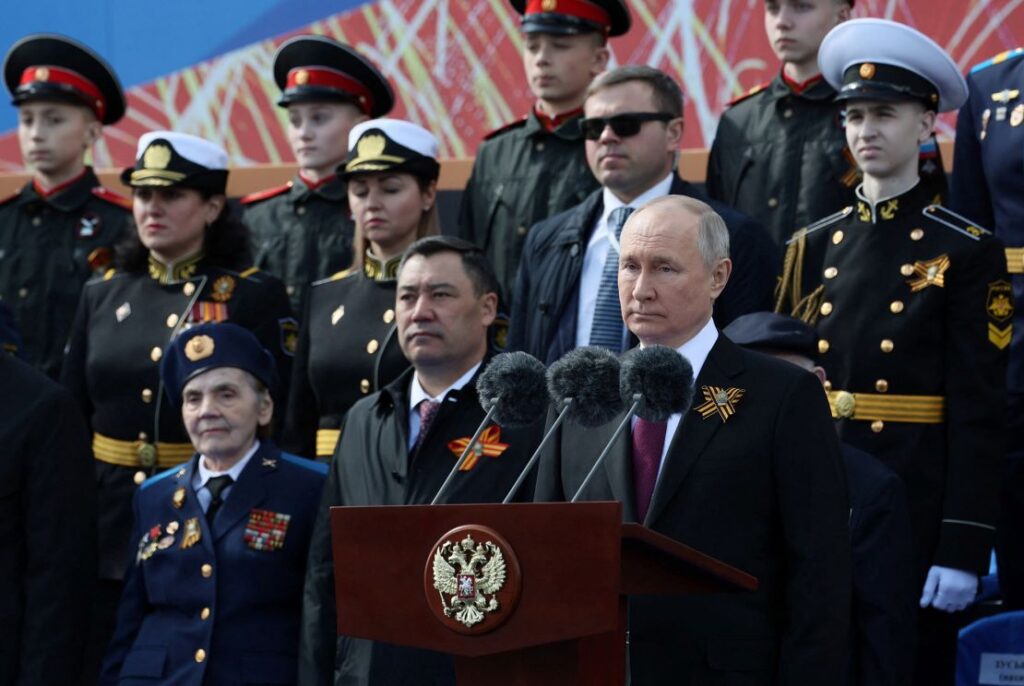
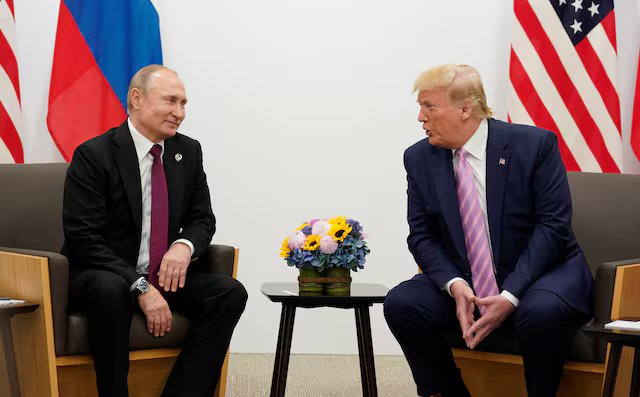
More on this story: Kremlin’s Strategy: Leveraging Diplomacy to Justify the Next Phase in Ukraine


